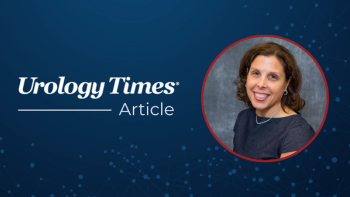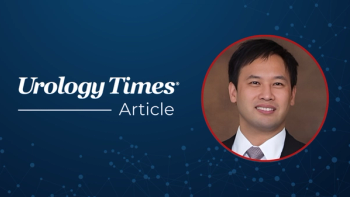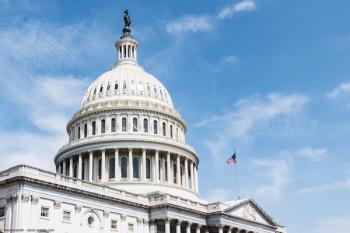
Urologists among specialists making mark on U.S. politics
Noted in many recent accounts of doctors running for Congress is the fact that, since January 2017, urologists have been fortunate to have one of their own serving in the U.S. House of Representatives-Florida's Neal Dunn, MD.
Based on a partnership with Urology Times, articles from the American Association of Clinical Urologists (AACU) provide updates on legislative processes and issues affecting urologists. We welcome your comments and suggestions. Contact the AACU government affairs office at 847-517-1050 or
Noted in many recent accounts of doctors running for Congress is the fact that, since January 2017, urologists have been fortunate to have one of their own serving in the U.S. House of Representatives-Florida's Neal Dunn, MD.
Dr. Dunn follows Larry McDonald, MD, as the most recent urologist elected to Congress. (Dr. McDonald represented Georgia's 7th district from 1975 until he was killed on board a flight to South Korea that was shot down by a Soviet fighter plane on Sept. 1, 1983.) Dr. Dunn leveraged many years of civic engagement and leadership in the medical community to win a tough primary election in 2016 and then emerge victorious in a race to represent the eastern part of the Florida panhandle.
The congressman has co-sponsored several bills that address urologists' legislative priorities, and his office solicited the AACU's comments on the 1,000-plus page proposal determining 2019 Medicare payments. This type of collaboration is not unlike the profession's relationship with other physician lawmakers who achieved success in the arduous electoral process.
Related:
According to
To “strengthen the bench” of doctors who may one day serve in such a capacity, several organizations exist. Several provider groups and political action committees annually present a Specialty Physician and Dentist Candidate Workshop to learn best practices in building grassroots support, fundraising, and media. Since the 1970s, the AMA has hosted candidate and campaign workshops that attract dozens of physicians and supporters every year.
Graduates of the AMA course include several lawmakers supported by the AACU-gastroenterologist U.S. Sen. Bill Cassidy (R-LA), obstetrician U.S. Rep. Phil Roe (R-TN), and John O'Bannon, MD, a neurologist and former member of the Virginia House of Delegates.
Delegate O'Bannon was honored with the 2016 AACU Distinguished Leadership Award for his work on certificate of need reform, while in 2017, the same recognition was granted to urologist Rep. Greg Murphy, MD, who was appointed to the North Carolina House of Representatives in 2015. Reputable statistics from 2007 lead us to believe that today, Dr. Murphy is one of approximately 275 state legislators who are members of the medical profession (which includes physicians, nurses, dentists, etc.). One reason for the dearth of physicians is the fact that most legislatures are considered part-time, and a sustainable income would depend on continued practice. Indeed, in addition to leading two legislative committees, Dr. Murphy is president of Eastern Urological Associates in Greenville, NC, and chief of the division of urology at the East Carolina University School of Medicine. A September 2017
It's no wonder then, that the percentage of medical professionals serving in state legislatures (3.6%) is only slightly higher than the number of physicians in Congress (2.4%).
State Senator Scott Jensen, MD (R-MN), a family practice physician, describes his experiences in the legislature as both underwhelming and challenging. According to the MPR story, "On many occasions, [Dr. Jensen has] had to rush to the Senate for votes, only to have floor sessions delayed for several hours." Considering the life and death matters he addresses as a physician, Dr. Jensen says, "I'm sure that at times it causes... me to be a little intolerant of the silliness."
Urologist Mark Edney, MD, who has been elected to positions within organized urology as well as the Maryland Republican party, likewise laments the "silliness," but remains committed to engagement in the political process.
Also see:
"It's often frustrating because policymaking moves at a snail's pace and there are a thousand reasons why common-sense, patient-friendly reforms are defeated or abandoned every year at both state and federal levels,” Dr. Edney said. "Among the most potent virtues, however, in politics as in life, are grit and perseverance. Both were absolutely necessary throughout my surgical training, service in the U.S. Army, and standing for election to my current position.
"I’m one of those odd ducks who enjoys the political process," Dr. Edney added. "Those of us who do [enjoy it] need to stay engaged and remain open to serving in any capacity that will improve state and federal policies that impact our patients and profession."
Newsletter
Stay current with the latest urology news and practice-changing insights — sign up now for the essential updates every urologist needs.






